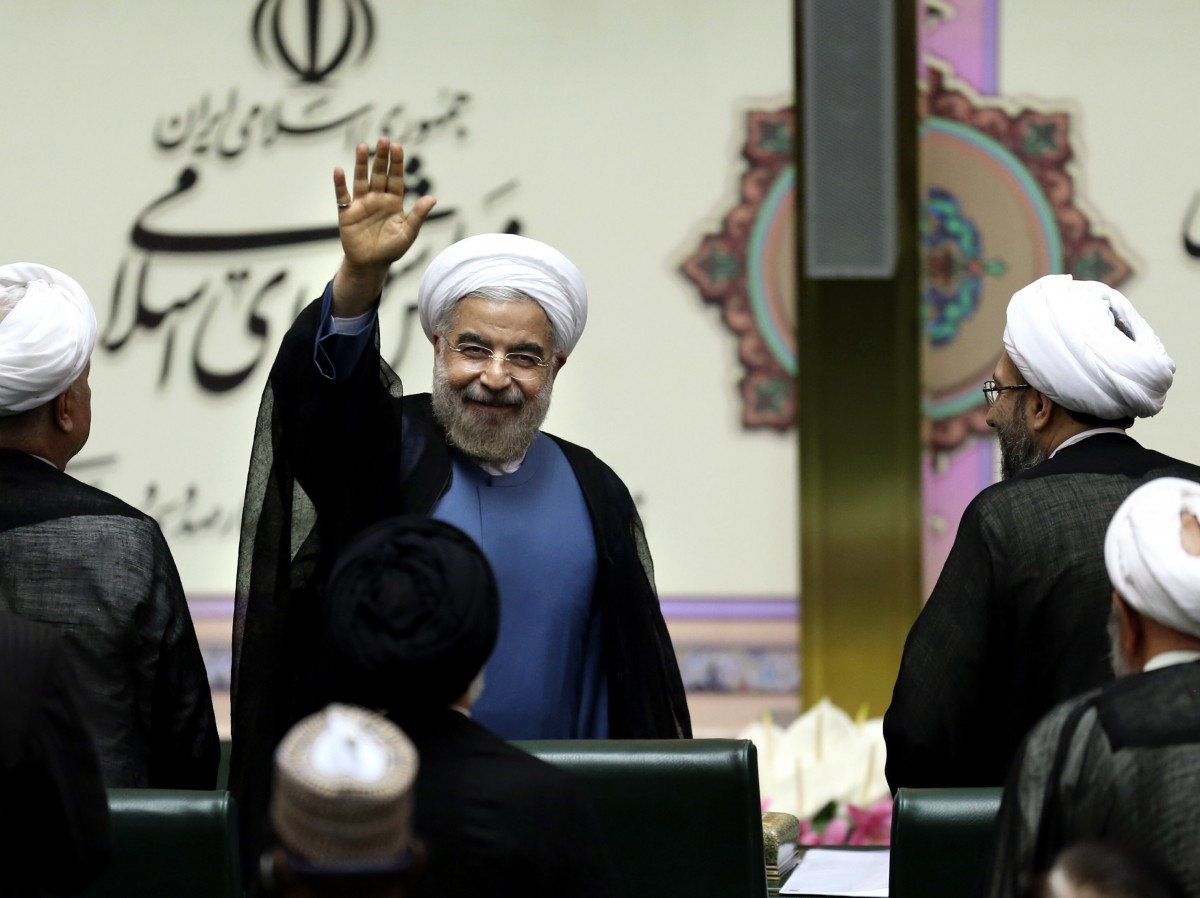
Fifty prominent current and former political prisoners in Iran have written a letter to President Obama urging him to end economic sanctions and engage in constructive dialogue with Iran’s new President, Hassan Rouhani.
“We, the undersigned current and former political prisoners in Iran, are writing this letter to bring to your attention the devastating effects of crippling economic sanctions and the intensified efforts to diplomatically isolate Iran in the international community. These efforts are adversely affecting the lives of Iranian people and have resulted in severe constraints in the political life of our country,” the letter reads.
U.S. imposed economic sanctions have existed since the 1979 Iranian revolution, but have increased sharply since 2005 after then President Mahmoud Ahmadinejad lifted the suspension of Iranian nuclear enrichment. Washington has consistently opposed any Iranian nuclear enrichment, claiming that it could be used to produce nuclear weapons. Iranian leadership has consistently claimed that the program is for peaceful purposes only.
Human rights organizations and medical associations report that the sanctions have hurt the civilian population, most of whom have no direct connection to the regime that President Obama and Congress have sought to isolate and coerce into abandoning nuclear enrichment activities.
“Sanctions are affecting the entire country, but it is the people that bear the brunt and have the least ability to protect themselves from this pressure,” said Trita Parsi, president of the National Iranian American Council to the Guardian Newspaper.
Pervasive medical supply shortages have been reported at government hospitals and pharmacies including a dearth of drugs to treat cancer, multiple sclerosis, blood disorders and other serious conditions according to one Reuters report.
Among the 50 signatories is Mohsen Aminzadeh, a leading opposition figure who was jailed in 2009 for participating in protests against the re-election of Mahmoud Ahmadinejad. Millions poured into the streets of Tehran and other major cities in opposition to the results in demonstrations that later become known as the Green Revolution. Many who claimed that the election was fraudulent were thrown in prison for their nonviolent protests.
The U.S. may now have a chance to turn the page on the Ahmadinejad era and restart dialogue. The U.S. and Iran have not had full economic or diplomatic relations since Iran’s 1979 Revolution ended the rule of the Shah, a close ally of the U.S. who rose to power after a U.S.-British-backed coup ousted Muhammad Mossadegh in 1953 following his administration’s decision to nationalize Iranian oil.
After decades of animosity, signatories representing foreign ministries and national security posts, some at high levels of government, believe that the election of Iran’s new President Rouhani, supported by a clear majority of the voting public, presents an opportunity for the West to engage the new President, who has vowed moderation and constructive dialogue.
The U.S. Congress remains split on the proper route to take in resolving the nuclear standoff, with 131 Congressional Representatives signing a letter to President Obama urging him to restart negotiations after Rouhani’s election in June.
“If the United States shows good will and mutual respect, the way for interaction will be open,” Rouhani said in a recent statement.


